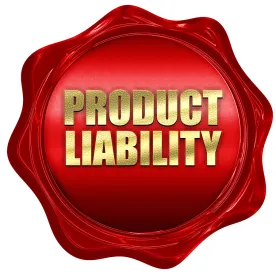As we wrote last year when the U.S. House of Representatives was debating a series of bills on narrow issues related to the U.S. Consumer Product Safety Commission (CPSC), a broader push to reform the agency was likely to come in late 2019 or early 2020. Now, at least one shoe of that overhaul has dropped.
Representative Bobby Rush (D-IL) has introduced the “Safety Hazard and Recall Efficiency Information Act,” or the SHARE Information Act (H.R. 5565), which would make two significant changes to the CPSC’s primary organic statute, the Consumer Product Safety Act (CPSA):
-
The bill would raise the statutory cap on the penalties the agency can pursue for a variety of prohibited acts from $15 million[1] to $50 million.
-
The bill would eliminate companies’ opportunity to prevent the agency from mistakenly releasing inaccurate, unfair information about their products.
As eye-catching as the three-fold increase in the penalty cap might be, the bill’s more buzzworthy reform is its dramatic reduction of the due process rights of CPSC-regulated entities.
Currently, Section 6(b) of the CPSA (15 U.S.C. § 2055(b)) generally asks the CPSC to give manufacturers notice and an opportunity to comment before the agency discloses product-specific information. If the CPSC intends to disclose information over a manufacturer’s objection, the manufacturer can, in theory, ask a federal court to enjoin the agency against its contemplated disclosure. Finally, if the CPSC discloses inaccurate information, the manufacturer can ask for a retraction.
The SHARE Information Act would gut these protections by removing the only step in this sequence that is outside the CPSC’s control – the injunction. The bill would leave companies with no recourse against unfair disclosures, including disclosures where there is too little verifiable information to convince the CPSC that it disclosed inaccurate information – as long as the agency does not “find” that it made a mistake, inaccuracies could go uncorrected forever.
As we have written previously, Section 6(b) represents Congress’ attempt to delicately counter-balance the enormous scope of information to which the CPSC has access, including information that is unverified, preliminary, and highly speculative. Congress understands that, because of the CPSA’s unique reporting requirements, the CPSC will receive a uniquely large volume of inaccurate and misleading information. Section 6(b)’s injunction provision is a neutral backstop against the agency’s inadvertent repetition of that faulty information.
As talented, dedicated, and conscientious as they are, the CPSC’s public servants are nonetheless human beings. Section 6(b) recognizes that mistakes can happen and gives companies somewhere to turn to correct a mistake before the damage is done.
This backstop is rarely used.
In the nearly 40 years the provision has been on the books, only a handful of companies have even sought an injunction, with most of those suits happening in the 1980s and 1990s. Litigating against the government in open court is a daunting prospect, but, where a proposed inaccurate or misleading disclosure would be ruinous, the Hobson’s choice of filing suit may be all a company has left. However, CPSC-regulated companies should engage quickly and clearly on H.R. 5565 to preserve their only independent check against the possibility that the CPSC might mistakenly repeat – in the full voice of the federal government – faulty, misleading information.
[1] The CPSC’s penalty cap is adjusted every five years for inflation and currently sits at $16.025 million. 81 Fed. Reg. 84,559 (Nov. 23, 2016).



 />i
/>i

